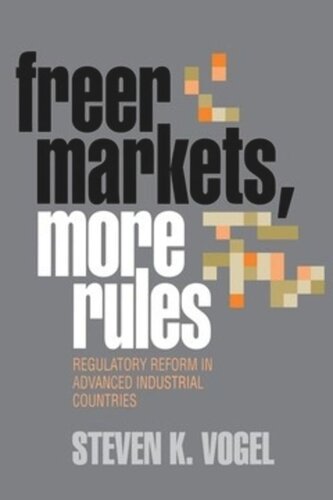

Most ebook files are in PDF format, so you can easily read them using various software such as Foxit Reader or directly on the Google Chrome browser.
Some ebook files are released by publishers in other formats such as .awz, .mobi, .epub, .fb2, etc. You may need to install specific software to read these formats on mobile/PC, such as Calibre.
Please read the tutorial at this link: https://ebookbell.com/faq
We offer FREE conversion to the popular formats you request; however, this may take some time. Therefore, right after payment, please email us, and we will try to provide the service as quickly as possible.
For some exceptional file formats or broken links (if any), please refrain from opening any disputes. Instead, email us first, and we will try to assist within a maximum of 6 hours.
EbookBell Team

0.0
0 reviewsOver the past fifteen years, the United States, Western Europe, and Japan have transformed the relationship between governments and corporations. The changes are complex and the terms used to describe them often obscure the reality. In Freer Markets, More Rules, Steven K. Vogel dispenses with euphemisms and makes sense of this recent transformation. In defiance of conventional wisdom, Vogel contends that the deregulation revolution of the 1980s and 1990s never happened. The advanced industrial countries moved toward liberalization or freer markets at the same time that they imposed reregulation or more rules. Moreover, the countries involved did not converge in regulatory practice but combined liberalization and reregulation in markedly different ways. The state itself, far more than private interest groups, drove the process of regulatory reform. Thus, the story of deregulation is one rich in paradox: a movement aimed at reducing regulation increased it; a movement propelled by global forces reinforced national differences; and a movement that purported to reduce state power was led by the state itself. Vogel's astute and far-reaching analysis compares deregulation in Britain and Japan, with special attention to the telecommunication and financial services industries. He also considers such important sectors as broadcasting, transportation, and utilities in the United States, France, and Germany.